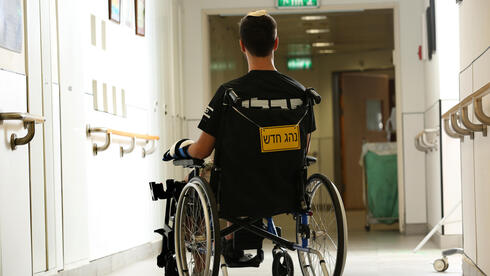Measles Outbreak in Alberta Sparks Vaccine Conversations Among Parents
The ongoing measles outbreak in Alberta is causing significant concern among parents as they navigate the complexities of keeping their children safe while engaging in sensitive discussions about vaccination. This dilemma is particularly pronounced in areas like Lethbridge, where vaccination rates for children who were seven years old last year varied dramatically, showing just 47 percent in surrounding counties compared to 80 percent in the city itself.
One such parent, Jillian Carter, is a resident of Lethbridge and has an eight-week-old infant who is currently too young to be vaccinated. Out of fear for her daughter’s health, Carter has adapted her lifestyle significantly, opting to leave her infant at home during grocery shopping trips and minimizing social interactions. She is cautious about exposing her baby to unfamiliar people, especially in light of the current health crisis. “It does make it hard to branch out into other communities, knowing that your child's safety is at risk when you don’t know where other people are standing [on vaccines],” Carter explained. “You find your people and you know your people. But it’s also something that does make you a little bit scared leaving the house with a newborn,” she added.
The resurgence of measles, a disease once eradicated in Canada, is largely attributed to declining vaccination rates. The outbreak in Alberta commenced in March and has now escalated to a staggering 505 confirmed cases. The highly contagious nature of measles poses serious health risks, manifesting initially as fever and cough, followed by a characteristic rash. Although many cases can be managed at home, complications can arise, leading to conditions like ear infections, pneumonia, and, in severe cases, encephalitis, which can cause permanent brain damage. Disturbingly, reports indicate that as of this week, Alberta has one child in intensive care due to measles complications.
In an effort to understand how parents are coping with the outbreak, CBC News visited a popular playground at Henderson Lake in Lethbridge to gather insights. The conversations revealed a hesitance among parents to openly discuss vaccination, especially since the COVID-19 pandemic has made such discussions even more contentious. Mackenzie Sailer, a friend of Carter’s, remarked, “We just don’t really talk about it. It’s like the three things you don’t bring up at the dinner table: religion, politics, and now vaccinations.”
Sailer, a mother of two young children, is not entirely opposed to vaccinations. She ensured her children received standard childhood immunizations, including the measles vaccine, but has opted out of the COVID-19 vaccine, citing uncertainty about its long-term effects. “It’s hard because we’re living in a society where there’s judgment,” she noted, emphasizing the need for open dialogue without passing judgment on differing views.
Shannon Vandenberg, an assistant dean of nursing at the University of Lethbridge and a public health nurse, has firsthand experience with the complexities surrounding vaccine hesitancy. Growing up in a Dutch Reformed Christian community in small-town Alberta, Vandenberg studied vaccine hesitancy during her master’s program and is now a mother of three boys. She is aware of the rifts that can develop within families and communities over vaccination decisions. “It can create rifts in families. I see that within my own family,” she confessed.
Vandenberg provided additional context to understand the reluctance some parents have toward immunizations. While speaking with parents at the playground, she encountered a mother who abstained from vaccinating her children, trusting instead in divine protection. However, this mother preferred to remain anonymous when discussing her views publicly due to potential backlash. Another parent, Caitlin Hepner, shared her own hesitations about vaccines, stating she feels uncomfortable discussing her choices after receiving negative comments on social media regarding her children.
Hepner expressed her belief in natural immunity and described her journey toward skepticism about vaccines. She recounted a troubling experience when her first child regressed in speech development shortly after receiving a vaccination. Despite raising her concerns with healthcare professionals, she felt dismissed. “They definitely dismiss it,” Hepner said. “It was mother’s intuition. But you’re fighting doctors—they’re ‘educated’ as they go to school.”
Vandenberg affirmed that concerns about side effects are common among parents hesitant to vaccinate. She explained that the timing of vaccinations, particularly the MMR (measles, mumps, and rubella) vaccine, is often coincidental with developmental changes in children. Despite the fears of adverse effects, extensive studies have repeatedly shown no correlation between the MMR vaccine and developmental delays or conditions such as autism. “This has been a very highly studied vaccine. It’s incredibly well-studied, and I have no doubt about its safety,” stated Dr. Lynora Saxinger, an infectious disease specialist at the University of Alberta.
Hepner conveyed that while she appreciates the advancements of modern medicine, she seeks alternative methods before opting for prescriptions. She hopes to engage in more constructive conversations about vaccines, emphasizing the importance of valuing parental insights. “People are very divided due to medical choices, and I think that’s absolutely insane. It’s vaccinated versus unvaccinated,” she lamented, observing that differing medical choices can lead to unwarranted judgments about an individual's character and integrity.
Vandenberg posited that fostering better conversations between healthcare providers and parents is key to addressing vaccine hesitancy. She encourages public health nurses to engage in open dialogues, which can help build trust over time. “I found a really nice time to do this was often at home visits,” she suggested. However, she acknowledged the increasing pressures on public health nurses and the shrinking resources available to support them in this endeavor.
As parents like Carter and Sailer strive for enhanced communication with others, they hope to encourage understanding and respect for diverse opinions regarding vaccination. Carter believes that every individual should have the autonomy to make informed choices regarding their health but stresses the importance of access to reliable information. “Hopefully, people have a family doctor they can trust,” she stated. Sailer echoed this sentiment, advocating for open-mindedness and acceptance. “There’s so many people that are black and white about it, and you can’t be involved with people that don’t have the same belief system as you,” she concluded. “In reality, that’s not sustainable; we’re all different, and we’re all gonna have different opinions, and that’s OK.”




























